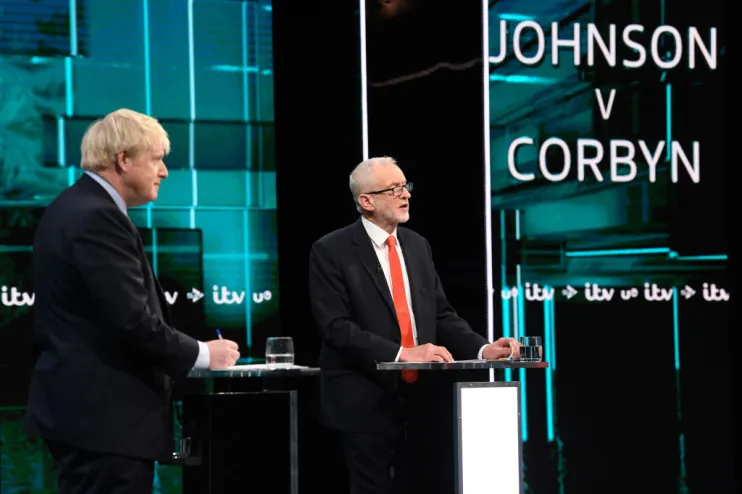Labour and the Tories are sweeping immigration under the rug this election

This election season is slogan heavy. “Get Brexit done.” “For the many, not the few.” While necessarily vague, this year’s party mottos have done a decent job of getting to the heart of their offers.
The Conservatives aren’t dallying on the UK’s exit from the European Union. The Labour Party is offering more taxes and borrowing to turbo-charge public spending. The offers are clear — like them or loathe them.
But not on every issue. Much of the tactic in public policy debate has been to swerve or avoid detail. In some areas, policy lines have been muddled completely.
And no area stands out more obviously than immigration, a huge issue during the Brexit referendum that has now been shoved under the rug by the two major parties.
Labour seemed to have dodged the question completely by linking the immigration debate to a second referendum. As articulated by Labour’s Richard Burgon during the ITV election debate last Sunday, it will be a decision for voters to make second time round, with the party trying to stay as far away from making a definitive case for more or less migration.
It is a far cry from a policy stance to say that it will be determined by a myriad of moving parts sometime in the following year.
But meanwhile, the Conservatives can’t seem to decide how closely they will align themselves with Theresa May’s era of hostile immigration policy.
While Boris Johnson has signalled that he’ll move away from arbitrary caps on migration (and recently made it easier for foreign graduates at UK universities to stay and work for up to two years), chief secretary to the Treasury Rishi Sunak also used the ITV debate to reveal that immigration figures would drop under a Conservative premiership.
It’s difficult to see how this could be predicted, especially under a points-based Australia-style system that the Tories want to introduce, unless the government were to set a cap and stick by it.
Perhaps their dithering on the topic reflects that the public isn’t as concerned about immigration anymore. While it was the major issue on the public’s mind leading up to the referendum, the Ipsos Mori Issues Index shows how the topic has plummeted in importance since the vote to leave the EU.
It now trails the NHS, crime, and the economy, despite having been at the front of the pack just a few years before.
But I suspect the silence is more reflective of a cowardliness in the two main parties to make the liberal case for immigration, from both the economic and ethical points of view.
While the system will be facing a massive overhaul if Brexit is delivered, the Conservatives know that immigration is necessary for tax revenue, to pay for the pension and healthcare promises they made to the public. Meanwhile, Labour knows that efforts to tackle poverty and create meaningful opportunities for a better life are issues that transcend borders.
Yet it’s been left to the smaller parties, like the Liberal Democrats, to make those harder but vitally necessary arguments. The status of migrants and refugees (particularly the latter group’s ability to work in the UK and contribute) has a home in some manifestos this election cycle, but not the major ones.
Chalk it up as a missed opportunity to engage in this important debate. But let’s not excuse it.
While it may not be a top priority in this election cycle, the immigration debate is far from over in the UK, and there are major questions to be answered — especially in a post-Brexit scenario. Standing on the sidelines is no position for future leaders to take.